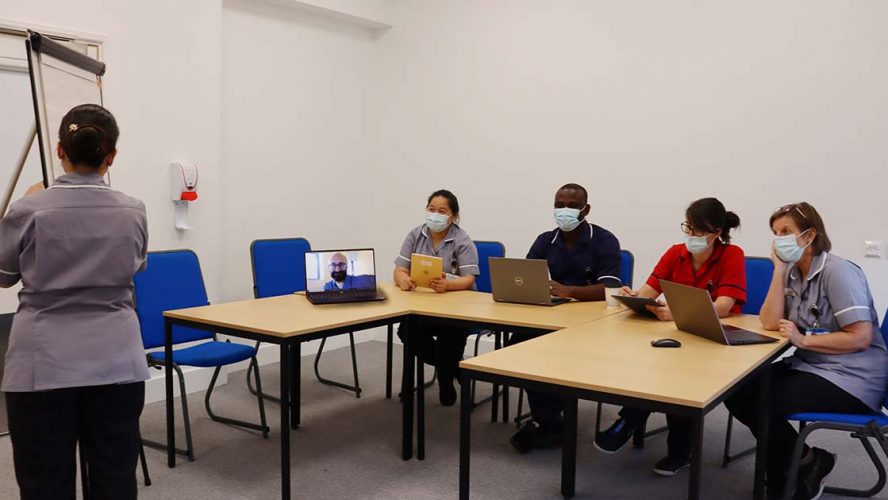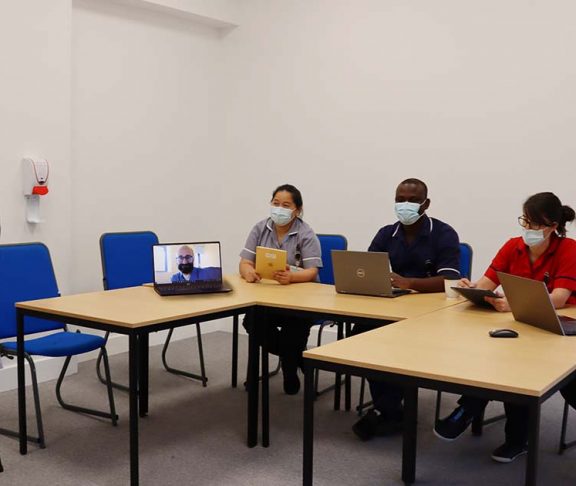
Mona Liza Marinas
Clinical Nurse Specialist for Infection Prevention and Control / Antimicrobial Stewardship Lead Nurse Royal Hospital for Neurodisability London, United Kingdom
The Infection Control Team (ICT) led a multidisciplinary approach to antimicrobial stewardship which improved the quality of antimicrobial prescribing used under two different models of care within the hospital.
Following the UK five year AMR strategy, the ICT , as the antimicrobial stewardship guardian for the hospital, carried out an extensive audit of antimicrobial prescribing practice. The audit showed the need for a standardised assessment process and provision of an antimicrobial formulary which was used under two different care models within the hospital: long term care (LTC) led by General Practitioners (GPs) and Brain Injury Services led by neuro-rehabilitation consultants. The guiding principle was to ‘start smart – then focus’.
The ICT audit (2014 – 2015) showed the need for improvement in the following areas:
- Management of clinical symptoms (i.e. improving aseptic technique for wound, respiratory and continence care).
- Appropriate antimicrobial prescribing.
- Collaboration within the multi-disciplinary team (MDT).
Neuro-rehabilitation patients may appear clinically well but microbiology results show a heavy growth of microorganisms.
The Clinical Nurse Specialists (CNS) role in AMR – AMR role
With regard to symptoms of infection, LTC patients have a different clinical presentation compared to neuro-rehabilitation patients. For example, increased chest secretions or a chronic wound in the LTC patient may not be an indicator of infection, but rather that their postural management needs reviewing.
On the other hand, neuro-rehabilitation patients may appear clinically well but microbiology results show a heavy growth of microorganisms.
The IPC (Infection Prevention and Control), respiratory, tissue viability and continence CNS focus on conservative management of symptoms before antimicrobial treatment is considered.
Multidisciplinary Team (MDT) approach
Understanding the complexity of antimicrobial resistance is essential. The ICT recognised the importance of using a MDT approach and working towards a common goal – that of is patient safety through the reduction and prevention of antimicrobial resistance.
The ICT, medical team, pharmacist, CNS team and physiotherapists worked closely to assess patients, review care plans and send specimens for culture and sensitivities prior to appropriate antimicrobial prescribing.
Antimicrobial formulary within the prescribing policy
In February 2015, the first antimicrobial formulary was developed for use across the entire hospital as part of the antibiotic prescribing policy.
Standardisation of practice enhanced antimicrobial stewardship and ensured the timely review of antibiotic use for all patients.

